The regime has been moving quickly to enforce the People’s Military Service Law since it activated conscription in February – an indication of the serious personnel shortage it faces as it continues its multi-front war with revolutionary groups across the country.
The regime has organized rallies and propaganda campaigns to encourage public acceptance of the law, instructed diplomats to justify it on the international stage, arranged venues for training potential conscripts and prepared a bylaw (now in its third draft), begun registering eligible individuals, and now commenced training for the first batch of conscripts.
Below, The Irrawaddy traces the major steps the regime has taken since the activation of the law on Feb. 10.
Feb. 10, 2024—The military regime activates the national conscription law, making it mandatory for the country’s young adults to serve in the military for two to five years.
The law dates back to 1959, when it was created by General Ne Win, and was amended in November 2010 by then-dictator Than Shwe. It was, however, never enforced under Ne Win, Than Shwe, Thein Sein’s quasi-civilian government, or the since-ousted National League for Democracy government.
The regime announced that 14 million of the country’s young people are eligible for conscription. That amounts to 26 percent of the country’s population of 54 million. The first group of 5,000 conscripts will be selected after the Myanmar New Year holidays in April, and women will not be drafted in the first few batches, it said.
Evading conscription is punishable by three to five years in prison and a fine. Pretending to be sick or disabled to evade conscription is punishable by five years in prison.
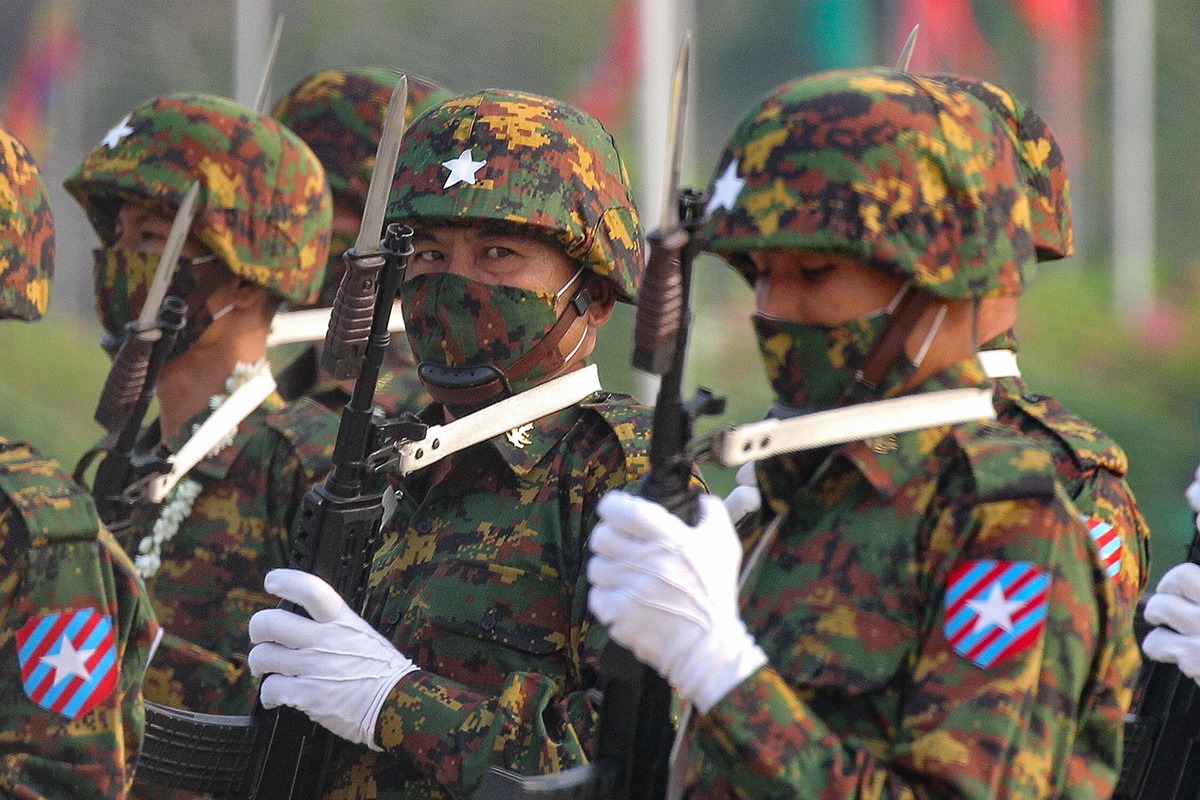
Feb. 13, 2024—Amid widespread concerns among members of the public, the regime forms a national-level committee overseeing conscription. The committee is headed by junta Defense Minister Tin Aung San, with Chief of Staff (Army, Navy, Air) Maung Maung Aye, the No. 3 man in the Myanmar military, serving as deputy chairman.
In Naypyitaw on the same day, junta boss Min Aung Hlaing and his deputy Soe Win meet leaders of 42 political parties that have registered for the junta’s proposed poll, to explain the conscription law. Min Aung Hlaing justifies the law by saying it is solely intended to maintain national security, and peace and tranquility.
The regime also sponsors rallies in support of the conscription law in more than 30 towns across the country.
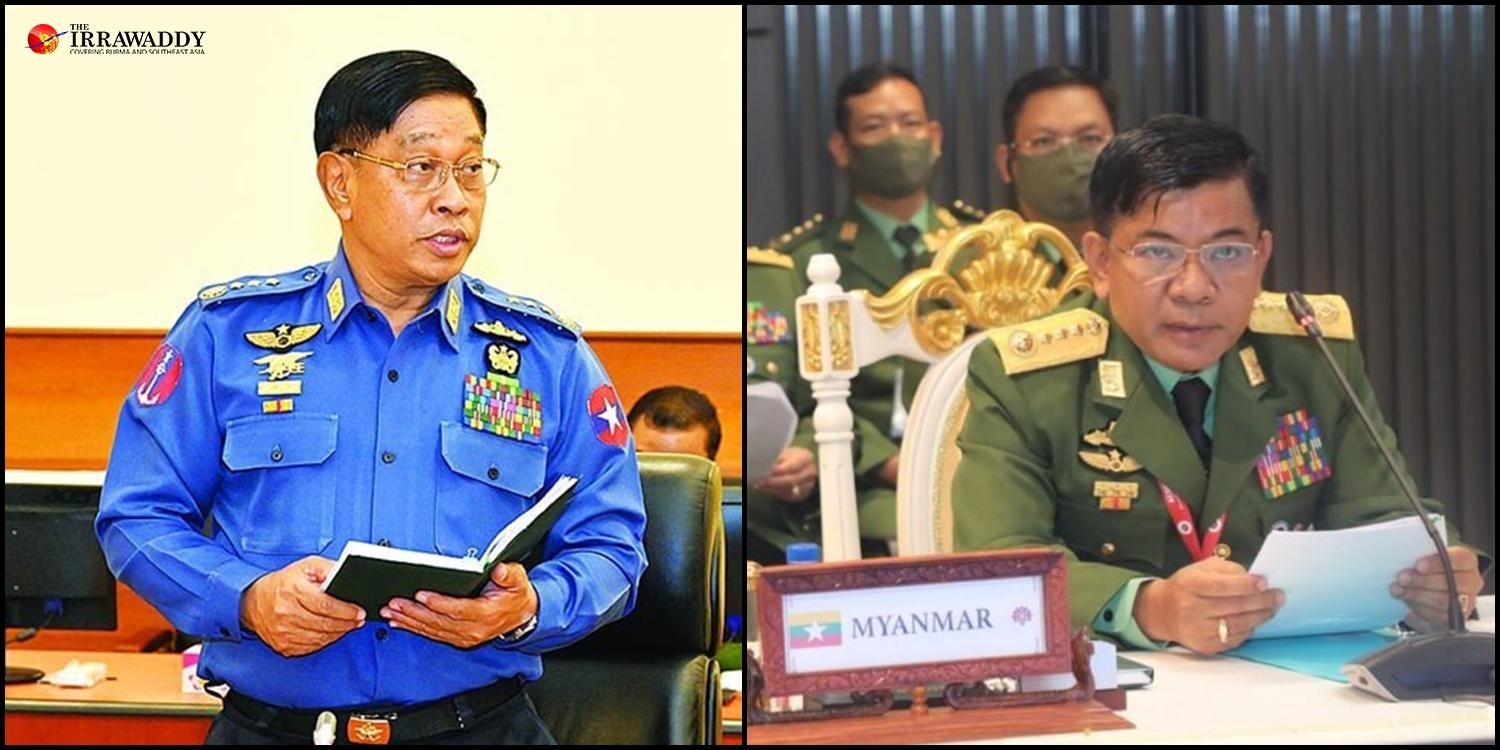
Feb. 14, 2024—The regime forms regional-level committees overseeing conscription in Naypyitaw and other regions and states. It also enforces the Reserve Forces Law, which allows it to send veterans back to the front line.
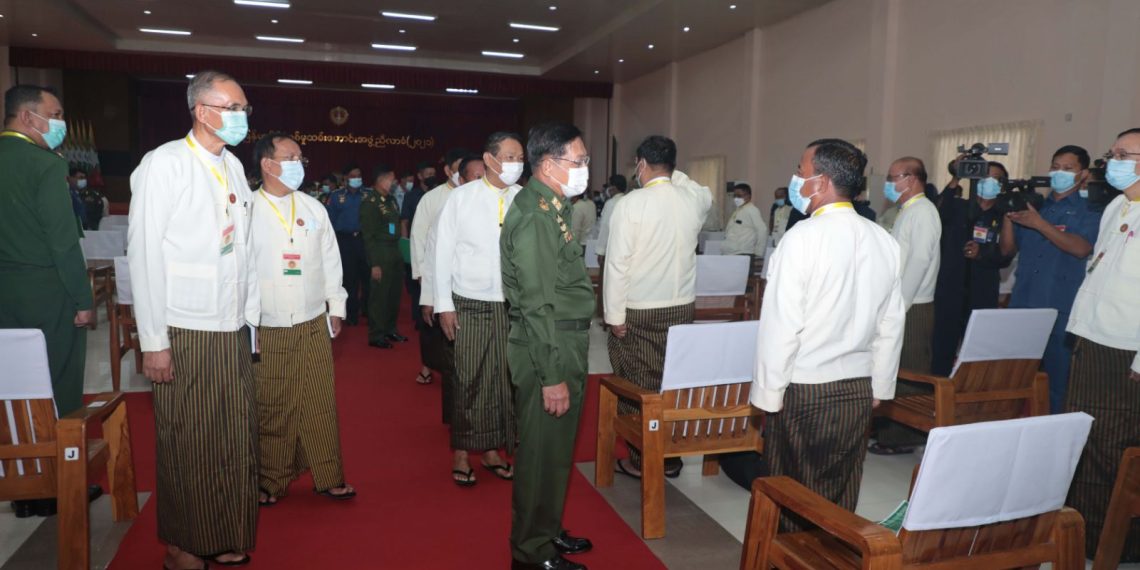
Feb. 15, 2024—The junta boss summons Myanmar ambassadors and chargés d’affaires to Naypyitaw to explain the conscription law to them. He asks them to thoroughly study the conscription law and Reserve Forces Law and explain to the governments of their host countries why they are necessary for Myanmar.
Feb. 17, 2024—The regime launches a conscription propaganda campaign—complete with posters, fliers, pep talks and threats—as it tries to present a more attractive view of mandatory military service.
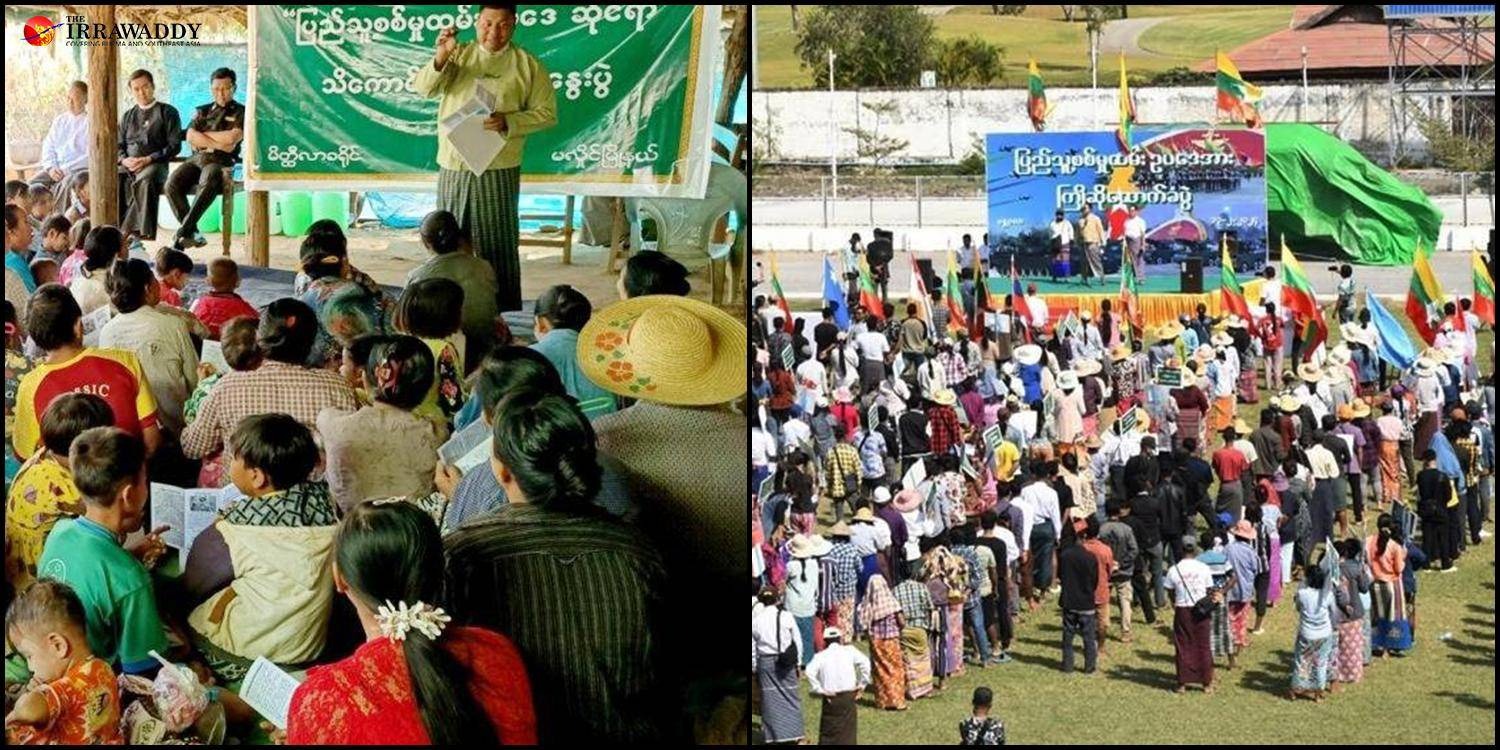
Feb. 19, 2024—Two women are killed in a pre-dawn stampede at the Myanmar passport office in Mandalay, as thousands of people attempt to squeeze into a line to apply for passports in order to leave the country and avoid conscription.
Feb. 26-27, 2024—The junta’s propaganda papers feature articles and interviews intended to persuade university students to join the University Training Corps (UTC), which acts as a reserve for the military’s depleted ranks.
The junta newspapers say that many generals, including regime boss Min Aung Hlaing, are former UTC members.
At the same time, the regime is forcibly conscripting Rohingya people in western Myanmar’s Rakhine State. Human rights activists have accused the regime of attempting to use Rohingya as human shields.
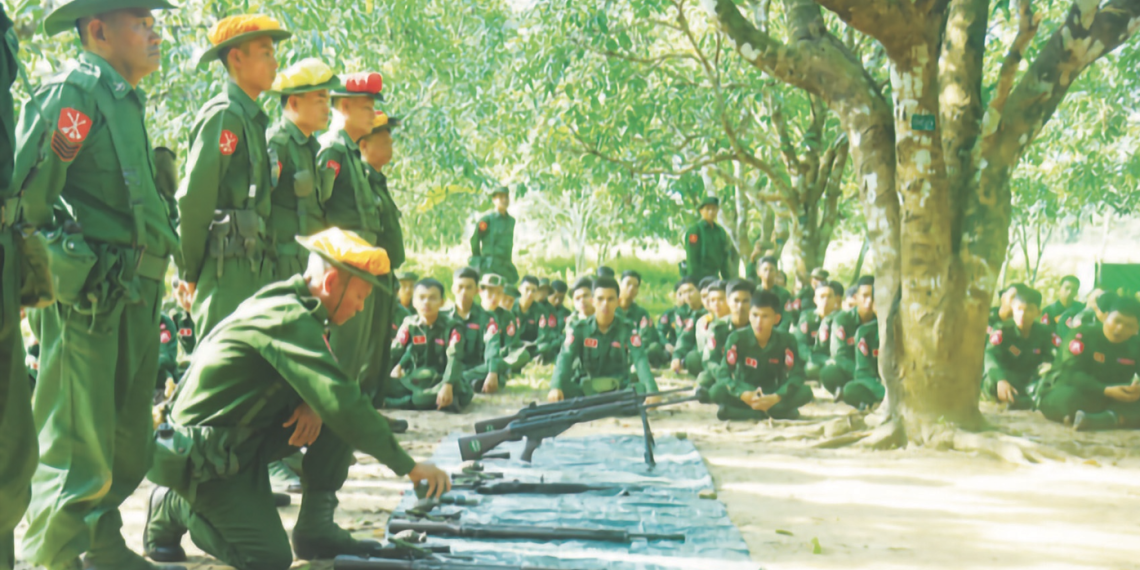
Feb. 28, 2024—Junta defense minister and chairman of the national-level committee overseeing conscription General Tin Aung San meets in Naypyitaw with Marcoluigi Corsi, UN Interim Resident Coordinator for Myanmar and Interim Humanitarian Coordinator for Myanmar, to discuss the newly enforced conscription law, as well as steps to prevent child recruitment in the Myanmar military.
March 4, 2024—Tin Aung San tells a meeting of the national-level committee overseeing conscription that the regime has already prepared venues for military training.
A working committee led by the judge advocate-general of the Myanmar military has produced a third draft of a law spelling out the conscription rules, and adopted standard operating procedures for conscription in collaboration with the junta’s Ministry of Legal Affairs, he tells the meeting.
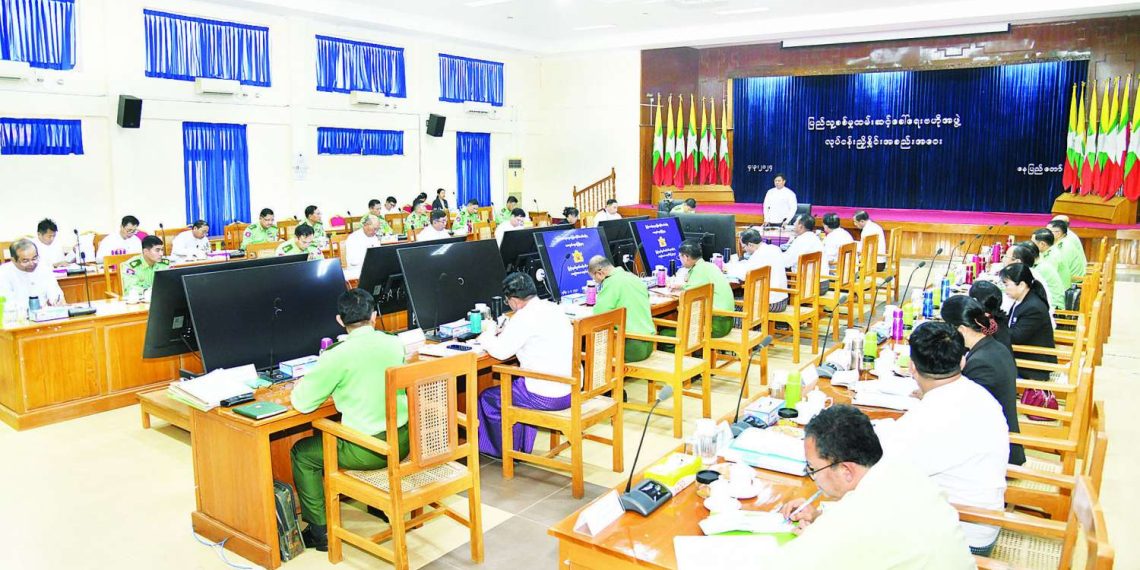
March 11, 2024—Deputy junta leader Soe Win tells a budget meeting that the proposed fiscal 2024-25 budget includes funding for conscription. FY2024-25 starts April 1.
March 13-14, 2024—Township-level committees overseeing conscription distribute call-up papers in Naypyitaw and Yangon, telling eligible individuals to report. In some towns, potential draftees are chosen by lot.
The National Unity Consultative Council and National League for Democracy launch a petition drive asking Myanmar people at home and abroad to oppose forced conscription. The petition will be submitted to international bodies including the United Nations.
In late February, the civilian National Unity Government also threatened legal action against anyone who cooperates with the regime’s effort to impose mandatory military service, warning that those who cooperate with the conscription drive could face charges under the Counter-Terrorism Law for abducting civilians to be used as forced labor in Myanmar’s military. The same applies to those who cooperate with the regime to force civilians to undergo military training, it says.
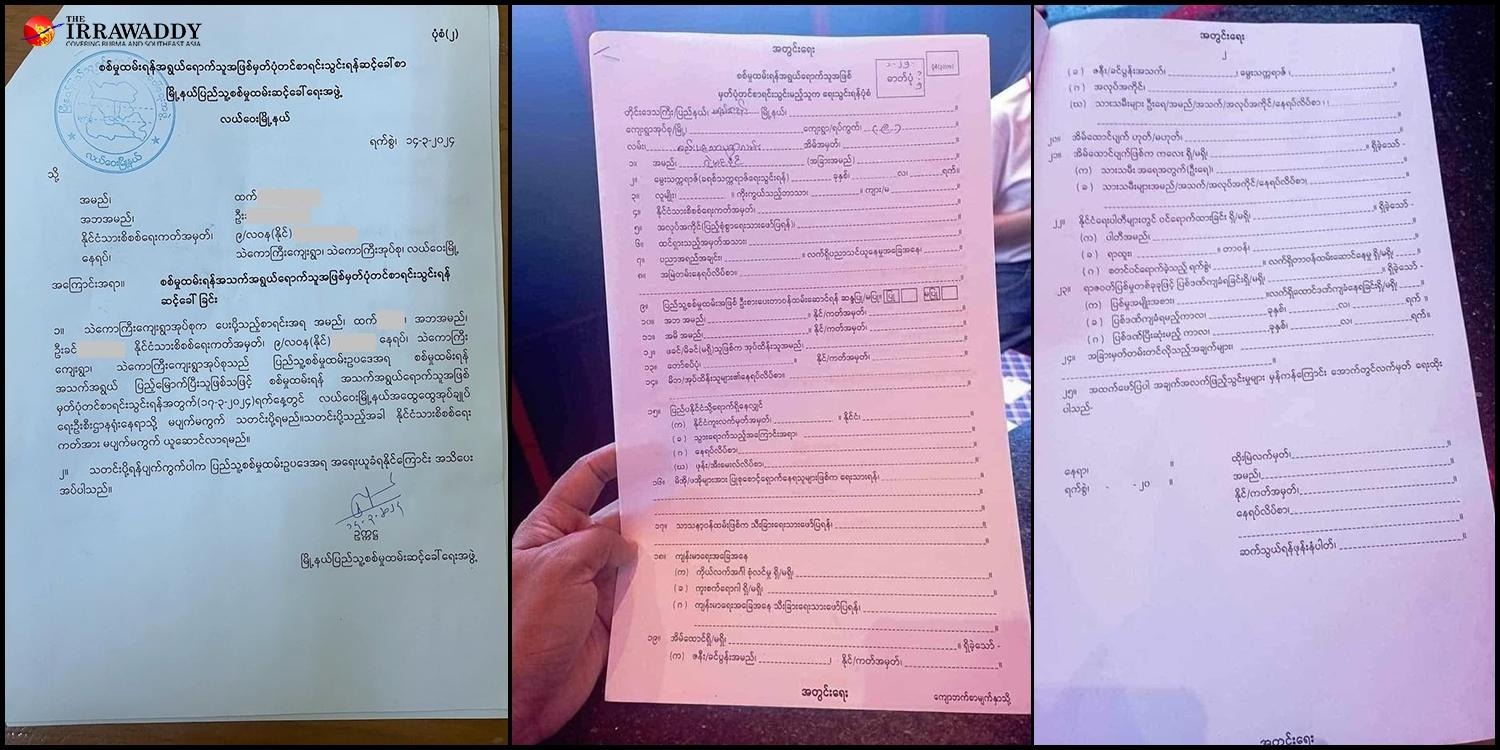
March 26 – Junta defense minister and chairman of the national-level committee overseeing conscription Gen Tin Aung San and Marcoluigi Corsi, UN Interim Resident Coordinator for Myanmar and Interim Humanitarian Coordinator for Myanmar, meet again in Naypyitaw to discuss the progress in the implementation of national conscription law, and evacuation of UN employees from Rakhine where the regime and the Arakan Army are fighting.
March 27 – At a military parade to mark the annual Armed Forces Day, Min Aung Hlaing says the conscription law and reserve forces law will boost the country’s defence forces. The parade is scaled back, indicating a serious personnel shortage.
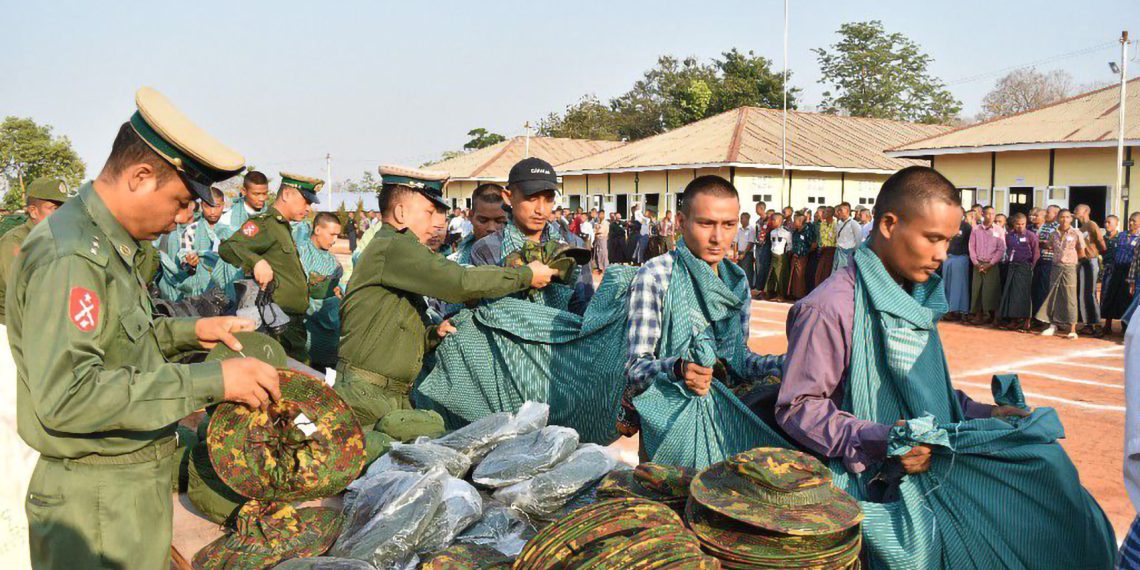
March 31 – A 27-year-old Muslim man from Taikkyi Township in Yangon Region who was chosen by lottery to be conscripted into the Myanmar military dies, after he was taken for military training at a battalion in Mingalardon Township four days ago. Family members are told that the man dies of epilepsy at Mingalardon Hospital.
April 1 – Min Aung Hlaing attends the 77th anniversary of the Myanmar military’s propaganda department, officially known as the Directorate of Public Relations and Psychological Welfare in Naypyitaw where he urges the department to instill patriotism in draftees and give special attention to boosting the morale of military personnel.
April 2 – Deputy junta chief Soe Win visits Combat Training School in southern Shan State’s Ba Htoo Town where he urges instructors and trainees to thoroughly study the conscription law and reserve forces law, and to drum up support for mandatory military service in regions where they would be stationed.
Tin Aung San tells a meeting of the national-level committee overseeing conscription that military training for the first intake of conscripts will begin in April, and the bylaw for conscription has been submitted to the junta’s Legal Affairs Ministry, pending approval from junta’s cabinet.
April 8 – The regime begins basic training for conscripts at military bases and schools across the country. Training takes place in Naypyitaw, Mandalay, Bago, Tanintharyi and Magwe regions, Shan and Mon states, Hopong Township in Pa-O Self-Administered Zone, and training schools in respective regional commands.
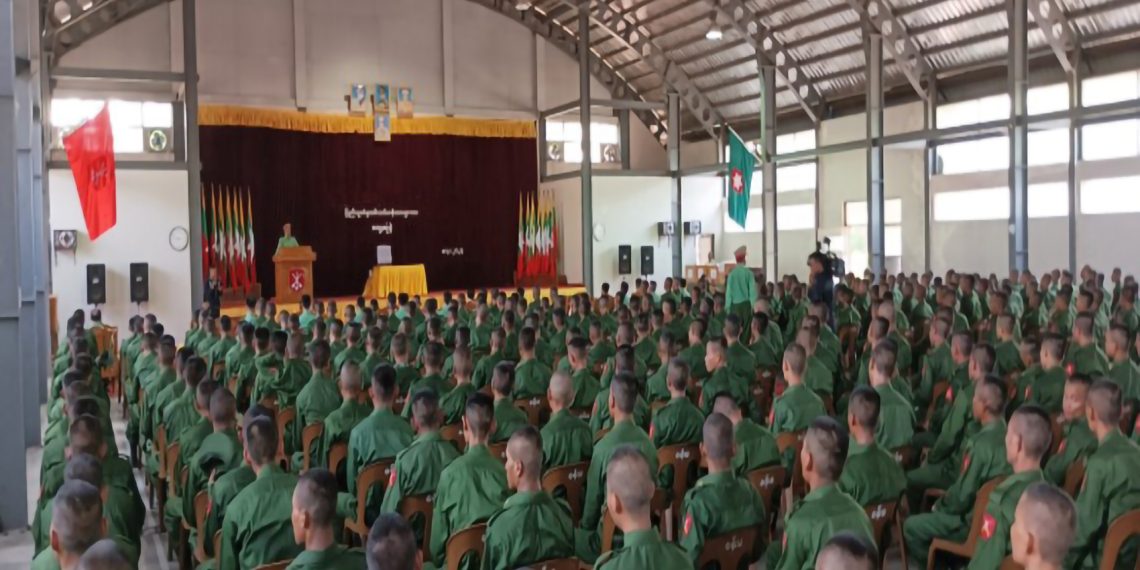
The regime previously claimed that more than 10,000 people had voluntarily enlisted, and 5,000 people would be drafted in the first batch. But it did not mention the exact number in the first intake.
The same day, people stage a protest against the conscription law in Yangon.
The timeline was last updated on April 10.

















